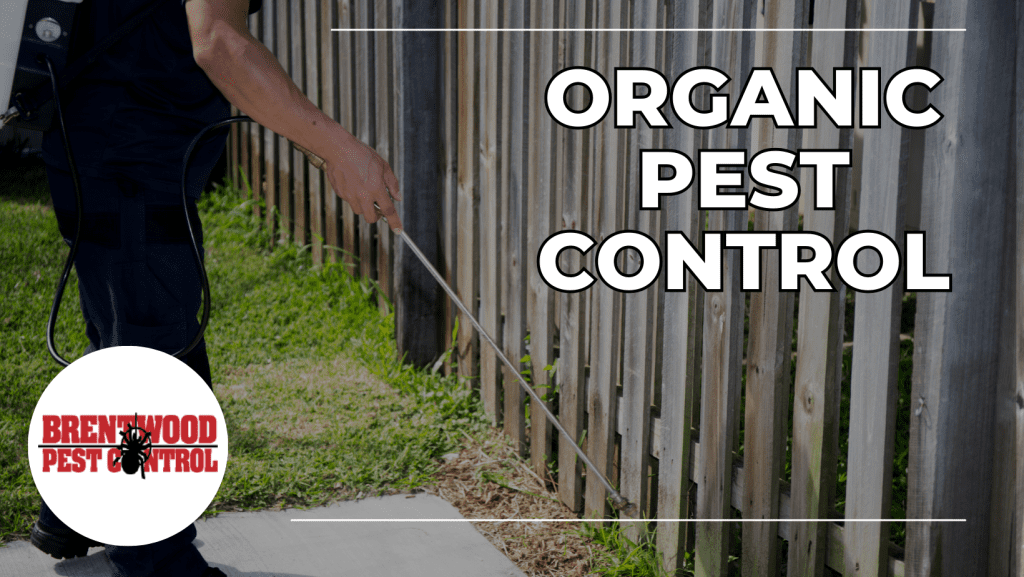
Maintaining a pest-free garden might seem impossible, but with the right approach, you can minimize pest damage while keeping your garden organic and thriving. At Brentwood Pest Control, we understand the importance of sustainable gardening practices that promote healthy plant growth without relying on harmful pesticides. Let’s explore why pests are attracted to gardens, the environmental benefits of organic gardening, and practical tips for pest-proofing your garden organically.
Understanding Pest Presence in Gardens
Pests are an inevitable part of gardening, signaling that your plants are healthy and desirable. In nature, insects feed on nutritious plants, and your garden is no exception. Even experienced gardeners encounter pests, as they are drawn to lush, thriving vegetation. Rather than viewing pest presence as a failure, consider it a testament to your gardening skills and the quality of your produce.
The Environmental Benefits of Organic Gardening
Opting for organic gardening practices not only promotes the health of your plants but also benefits the environment and human health. Conventional pesticides used in agriculture contain a variety of chemicals that can harm ecosystems, pollinators, and water sources. By avoiding synthetic pesticides, you minimize your ecological footprint and contribute to a healthier planet.
Organic gardening also reduces human exposure to harmful chemicals found in conventional pesticides. Studies have shown that pesticide residues can accumulate in the body, posing risks to human health, especially for farmworkers and their families. By choosing organic produce and adopting organic gardening methods, you support safer farming practices and protect your health and the well-being of future generations.
The Impact of Pesticides on Ecosystems
The widespread use of pesticides in agriculture has far-reaching consequences for ecosystems and wildlife. Pollinators, such as bees and butterflies, are particularly vulnerable to pesticide exposure, leading to population declines and habitat loss. Additionally, pesticide runoff contaminates water sources, threatening aquatic life and disrupting fragile ecosystems.
Wildlife species that prey on garden pests may also be affected by pesticide exposure, leading to imbalances in natural predator-prey relationships. By minimizing pesticide use in your garden, you create a healthier environment for beneficial insects and wildlife, fostering biodiversity and ecological resilience.
Practical Tips for Organic Pest Control
1. Physical Barriers: Protect your garden with physical barriers such as garden mesh fabric or agfabric. These materials create a barrier that allows sunlight, water, and air to reach your plants while keeping pests out. Cover your garden beds from the moment you plant or sow seeds to prevent pest infestations from the start.
2. Companion Planting: Plant companion crops that naturally repel pests or attract beneficial insects. For example, marigolds deter aphids, while dill and parsley attract predatory insects that feed on garden pests. Research companion planting strategies to maximize pest control without relying on chemical interventions.
3. Crop Rotation: Rotate crops annually to disrupt pest life cycles and reduce the buildup of pest populations in the soil. Avoid planting the same crops in the same location year after year, as this can lead to increased pest pressure and soil depletion. Rotate crops to promote soil health and natural pest control.
4. Biological Controls: Introduce natural predators, such as ladybugs, lacewings, and parasitic wasps, to your garden to control pest populations. These beneficial insects feed on garden pests and help maintain ecological balance without the need for chemical pesticides. Encourage biodiversity in your garden to support natural pest control mechanisms.
Create a Healthy, Pest-Resistant Garden with Brentwood Pest Control
At Brentwood Pest Control, we’re committed to helping you create a healthy, pest-resistant garden using organic pest control methods. By prioritizing sustainable gardening practices and minimizing pesticide use, you can enjoy bountiful harvests while protecting the environment and promoting biodiversity. For personalized advice and support on pest-proofing your garden organically, visit our website or contact Brentwood Pest Control at (615) 417-1243. Let’s work together to cultivate a garden that thrives without compromising on sustainability or environmental stewardship.
